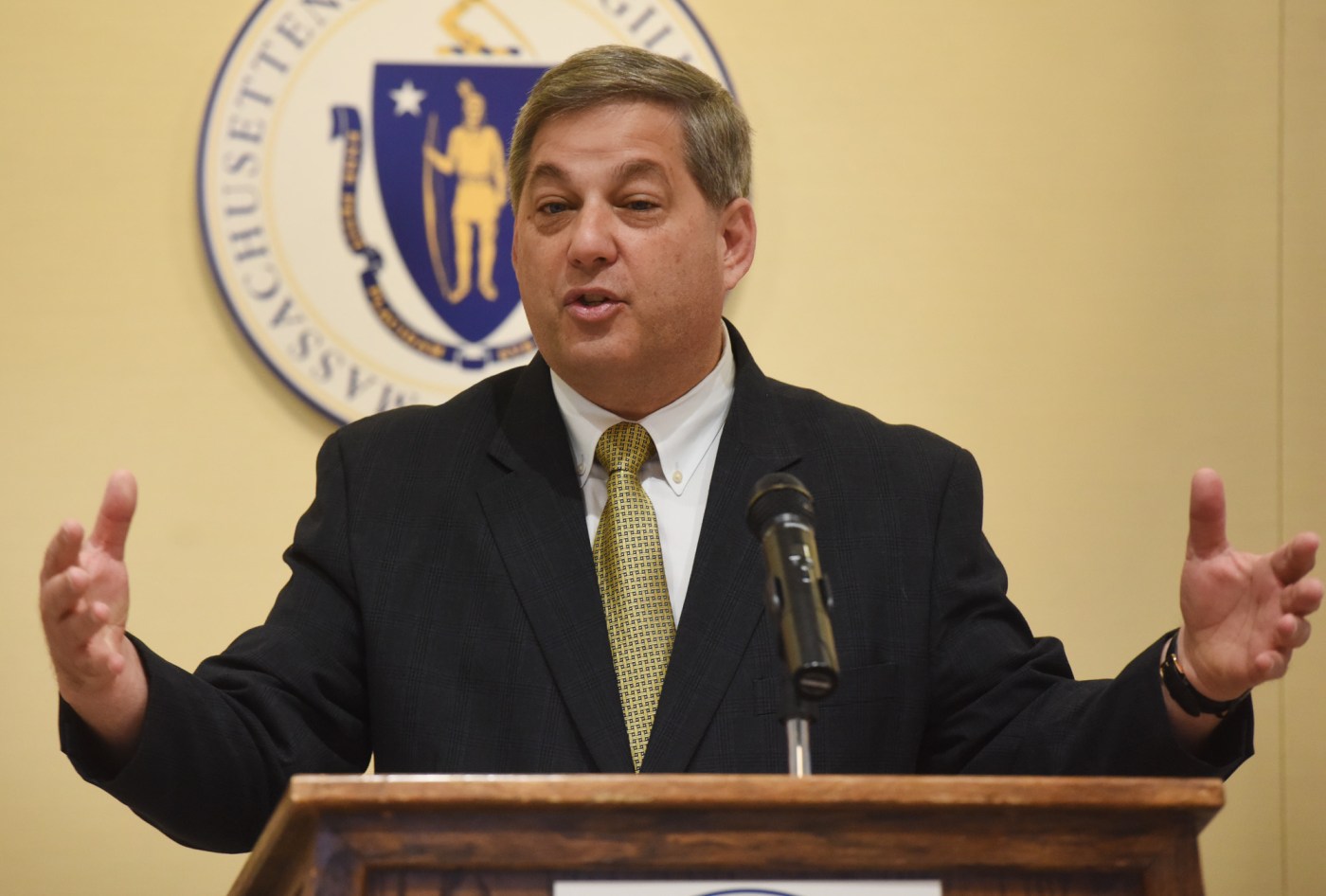
Senate leaders not connecting on Tarr proposal for Steward special counsel
Senate President Karen Spilka refrained from lending her support for a budget amendment calling for the appointment of special counsel to handle Massachusetts’ interests in Steward Health Care’s bankruptcy proceedings, and said Wednesday that the Senate would take up a health care bill in the “near future.”
Senate Minority Leader Bruce Tarr filed the amendment (#405) to allow the attorney general to appoint a person, or team of people, to handle the commonwealth’s interests in the case. Steward Health Care owns eight hospitals in Massachusetts, and those hospital’s futures are uncertain as the for-profit hospital system undergoes bankruptcy proceedings in Texas.
The amendment also creates a Healthcare Provider Liability and Patient Protection Fund, seeded with $200,000, for Massachusetts to receive money from fines, penalties, sanctions and recoveries from health care providers tied to “judicial, regulatory, or administrative law proceedings to which the commonwealth or any agency thereof is a party.”
“We’re filing this because we think it is time for this action to be taken, whether it happens in this budget document or in a successive bill that may be coming, that’s yet to be determined,” Tarr told reporters during the dinner break in Tuesday’s Senate session. “But we think it’s an idea whose time has come.”
Asked Wednesday about whether she supports Tarr’s amendment — which as of Wednesday afternoon had not yet received a vote during the Senate’s ongoing budget debate — Spilka replied, “He hasn’t spoken to me about it.”
“I don’t really know what he envisions,” she added. “But we will be doing a health care bill to look at things, so we’ll see.”
The House last week passed a hospital reform and oversight bill, with major changes to how regulators work to contain health care spending, new tools to deal with facility expansions and closures, and policies meant to prevent another crisis like the one Steward has left in its wake in Massachusetts.
In response to a News Service question on when the Senate will take up the health care bill, with only about 10 weeks left for formal sessions this year, Spilka replied, “Well the House just did it.”
“I think we may have just gotten it from them. As you know, it’s a very complicated, complex bill. So we’ll take it up when we can,” she said. Spilka later told reporters that “the ink has barely dried” on the House bill.
The House bill was based on redrafted legislation reported from the Legislature’s Joint Health Care Financing Committee on April 30. Sen. Cindy Friedman is the Senate chair of that panel, and has been working with House chair John Lawn this session.
The House also passed a bill (H 4193) in November meant to transform oversight, staffing supports and disease management in nursing homes and long-term care facilities. That legislation has rested in the Senate Ways and Means Committee since then.
The bill would implement changes a nursing facility task force recommended in January 2020, such as granting the Department of Public Health more regulatory muscle and creating career ladder and grant programs to support workforce development.
All long-term care facilities would be required under the bill to develop individualized infection outbreak response plans, which would need to be submitted to DPH for review every year.
During Wednesday’s session, Sen. Pat Jehlen called for the Senate to move on the long-term care bill.
Jehlen said she hopes the chamber will take up the bill in the next few weeks, and that they’ll make a pass at reforming home care licensure and clarifying rate-setting processes for these services. She withdrew amendments from the budget to address these issues, but called for them to be taken up in a supplemental budget or other work coming up soon before the Senate.


